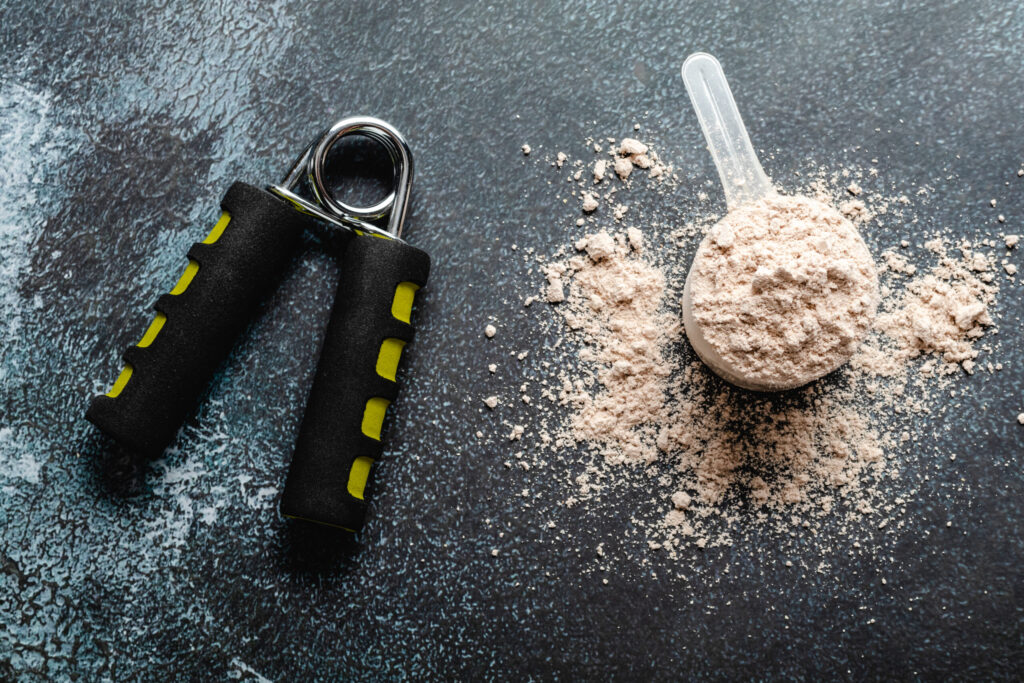Tips for Properly Incorporating Creatine Into Your Fitness Regimen
As the realm of health and fitness continually evolves, supplements like creatine have risen to prominence for their potential to enhance performance and muscle growth. Whether you’re an athlete trying to gain an edge or a fitness enthusiast aiming to break through plateaus, understanding creatine is key to harnessing its benefits effectively. But, it’s not just about taking a supplement; it’s about doing so intelligently to synergize with your body’s natural rhythms and needs. In this article, we delve into how to properly incorporate creatine into your fitness regimen, ensuring you make the most of this powerful aid.
Understanding Creatine and Its Benefits for Muscle Growth

Creatine is a naturally occurring compound in muscle cells, aiding in energy production during intense exercise. It’s synthesized from amino acids and found in foods like meat and fish. Supplementing with creatine increases phosphocreatine stores, enhancing performance and muscle endurance, especially when paired with resistance training.
Research shows it boosts muscle strength and size, aids in ATP production for sustained energy, and improves recovery and cognitive function. Sunwarrior creatine offers a plant-based option, catering to diverse dietary needs without compromising on benefits.
Essential Timing: When to Take Creatine for Maximum Effectiveness
Experts recommend timing your creatine intake around workouts to maximize its impact on muscle growth and performance. Recent research suggests post-workout supplementation may be more beneficial due to increased blood flow and nutrient delivery to muscles. Taking creatine with fast-absorbing carbs can enhance uptake by initiating an insulin spike.
On non-workout days, it’s advised to take creatine with a meal containing carbs and protein to maintain muscle levels. Individual preferences may vary, so adjusting intake times according to personal response is beneficial. Consistency is key for optimal results with creatine supplementation.
Determining the Right Creatine Dosage for Your Fitness Goals
There are two common approaches to creatine supplementation: the loading phase and the no-loading method. During the loading phase, individuals typically consume 20 grams of creatine per day for 5-7 days, followed by a maintenance phase of 3-5 grams daily. This method saturates muscles quickly but may cause stomach discomfort.
The no-loading method involves consistent daily dosages of 3-5 grams from the start. While it takes longer to boost creatine levels, it’s generally more comfortable and sustainable. Personal factors like muscle mass, activity level, and diet influence optimal dosages. Quality creatine monohydrate is crucial, with adjustments made based on progress and any side effects.
Combining Creatine With Diet and Hydration for Enhanced Performance

A holistic fitness approach combines a balanced diet, hydration, and creatine supplementation for optimal results. Creatine works synergistically with macronutrients like protein, enhancing its effects. Adequate hydration is crucial, as creatine draws water into muscles, requiring increased water intake. Monitoring urine color and frequency helps maintain hydration levels.
Carbohydrates aid in creatine uptake and replenish glycogen stores post-exercise. Opt for complex carbs like whole grains and legumes for sustained energy. Fruits and vegetables provide antioxidants that combat oxidative stress from training, supporting muscle growth and recovery.
Monitoring Your Progress and Adjusting Your Creatine Intake
Tracking your workout progress and body responses is vital when using creatine. Keeping a detailed record of your exercises, performance levels, and physical changes will inform you whether the creatine dosage and timing are working in your favor. It will also highlight any necessary adjustments to ensure continuous improvement.
Changes in body weight and muscle fullness can serve as indicators of creatine’s effect. Some users may experience slight weight gain due to increased water retention in muscles, which is a normal aspect of creatine supplementation. If excessive water retention or other undesirable effects occur, it may mean that your dosage needs tweaking.
The quality of rest and recovery should be monitored. Since creatine supports recovery, if you find yourself bouncing back quicker from workouts, you’ll know the supplement is doing its job. If you are not noticing any apparent benefits or changes, you might need to reevaluate your intake or consider other factors in your regimen that may need attention.
Your body’s feedback and attainment of personal fitness milestones are the definitive measures for adjusting your creatine intake. Regular updates and evaluations with a health professional or dietician can also offer insights and confirm you are on the right track.
Overall, to maximize the benefits of creatine in your fitness routine, be strategic. Consider timing, dosage, diet, hydration, and personal progress. Use creatine as a supplement alongside a balanced diet and structured training plan for optimal results.


